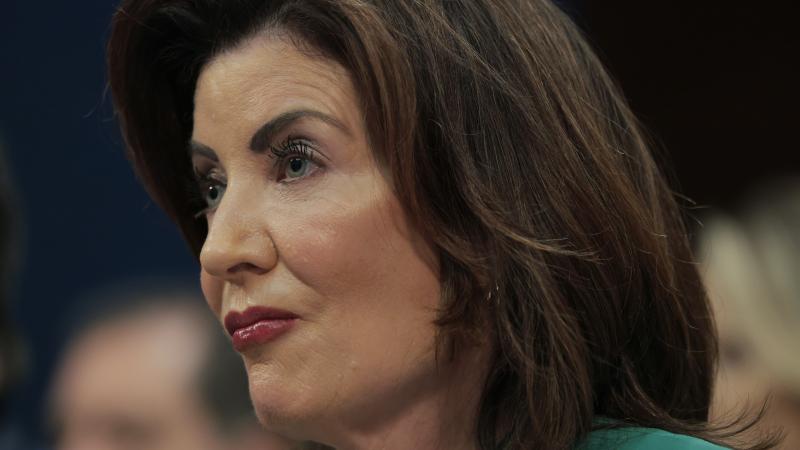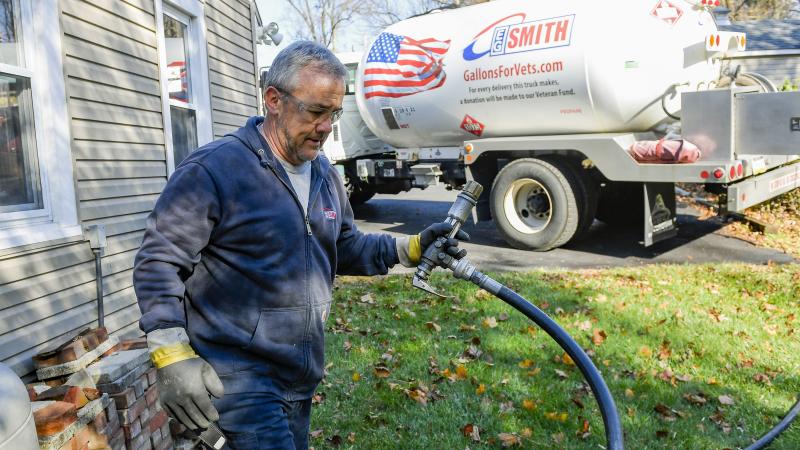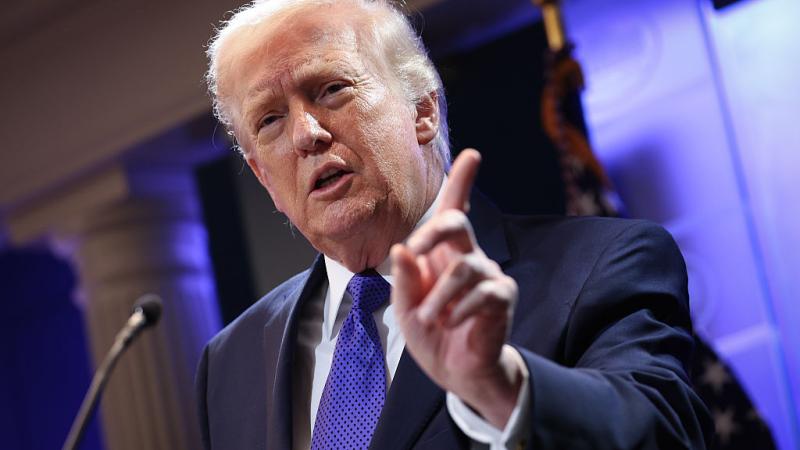Nuclear energy renaissance emerges as counterbalance to Democrats' Green New Deal
Republican Congresswoman Mariannette Miller-Meeks explains how nuclear energy could play a growing role in America's future energy needs.
Nuclear energy is having a renaissance in the United States as an alternative to Democrats' push to severely limit the country's use of fossil fuel and replace it with wind, solar and more pressingly electric-powered vehicles.
Rep. Mariannette Miller-Meeks, a Republican on the House Energy and Commerce Committee, recently told Just the News that nuclear has "come back to the forefront” of energy policy because it is abundant, continuously generating and has zero emissions.
The rebirth is also being attributed in large part to advances in technology that have also made nuclear safer and more cost effective – compared to the Chernobyl disaster of 1986 in Ukraine, considered the worst in terms of death toll and cost, and in which roughly 30 people died in the immediate aftermath of of nuclear reactor explosion, or the Three Mile Island nuclear reactor meltdown in 1979 in Pennsylvania.
"We want a cleaner, healthier planet," continued Miller-Meeks, who's also vice chairwoman of the Conservative Climate Caucus. "But we also want to be able to compete economically around the globe."
To be sure, China, with its stronghold on the essential rare earth elements to make electric vehicle batteries, then produce and selling them to the U.S. and other nations, has advance to the forefront in the electric vehicle push.
Meanwhile, the advances in the nuclear power industry are also gaining favor in European and parts of Asia beyond China.
Wind and solar, Miller-Meeks says, cannot provide a "continual base load that will be able to provide energy and electricity if the sun's not shining and the wind isn't blowing. ... We have enough experience with wind and solar: They don't have the capacity."
However, “natural gas and nuclear are two of those things” that can, and moreover, nuclear can while helping lower carbon emissions," the Iowa lawmaker also argues.
Nuclear energy has been an integral part of U.S. energy grid for more than six decades. It’s also the nation’s largest domestic source of clean energy to date, accounting for 47% of “carbon-free electricity in 2022.”
]Democrats have long been pushing for America to ditch fossil fuels and rely fully on renewable energy.
The Obama administration in 2009 tried to advance the country's efforts on so-called sustainable energy by signing a $535 million loan for the California-base solar-energy technology company Solyndra that filed for bankruptcy two years later.
And in 2019, upstart freshman Congresswoman Alexandria Ocasio-Cortez attempted to highjack fellow Democrats' first few days of retaking control of the House with her Green New Deal plan, which ultimately failed to get support, even among member of her own conference, because of its massive, estimate $39 trillion price tag.
In addition, the New York Democrat's plan was also described by North American Electric Reliability Corps' Robert Blohm as "likely technologically impossible," primarily because, he said, "You can’t spontaneously increase wind or sunshine."
Miller-Meeks also argues Europe nations' opposition to Russia invading Ukraine showed how vulnerable at least that region is in being reliant on another country for its energy, in this case Russia.
"Relying upon Russia for oil and gas and natural gas put them at a disadvantage,” she said. “So when Germany stopped [fracking],” much of Europe found itself in trouble, but countries like France were able to stay afloat better because it gets “most of its electricity from nuclear.”
A Gallup poll released in April found that the majority of Americans view nuclear energy more favorably than they have in over a decade, with 55% feeling “strongly” or “somewhat” that it should continue to power the electric grid.
Miller-Meeks says House Republicans will continue to advance clean nuclear energy solutions and introduce related legislation in the “very near future."
Last month, the House Subcommittee on Energy, Climate & Grid Security, led by South Carolina GOP Rep. Jeff Duncan, held a hearing titled “American Nuclear Energy Expansion.”
Responding to Germany’s energy crisis after it shut down its last three nuclear plants, Duncan argued nuclear “must be part of our energy matrix."
“To expand the [nuclear] industry, it is vital we encourage regulatory certainty and make sure our reactor licensing processes enable the safe and broad deployment of nuclear technologies,” he said.
Duncan also said nuclear power gives America “significant geopolitical advantage and leverage” because of the “robust nuclear export market” that can enable the country to set nuclear norms around the globe.
However, rival nations are also trying to lead in nuclear development.
The New York Times recently reported that China is trending to become a “nuclear superpower,” which Duncan warned could present the U.S. with significant challenges.
“We cannot cede our global leadership to our adversaries," he said. "We must prioritize modernizing our regulatory structure in the United States and do what is needed to encourage growth throughout the industry."
Follow Addison on Twitter.















